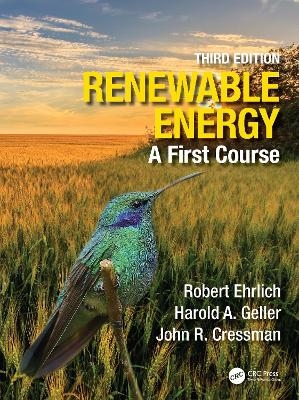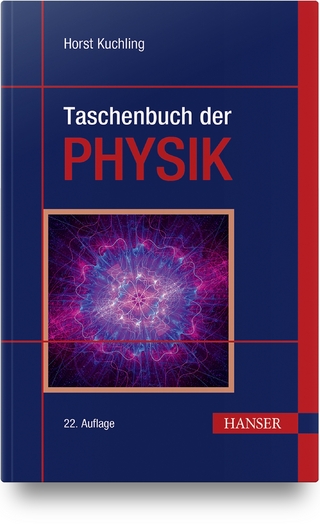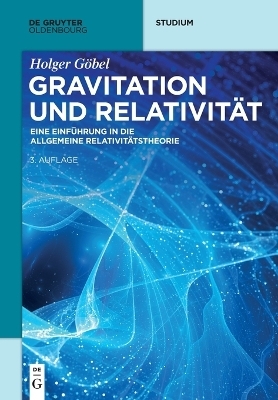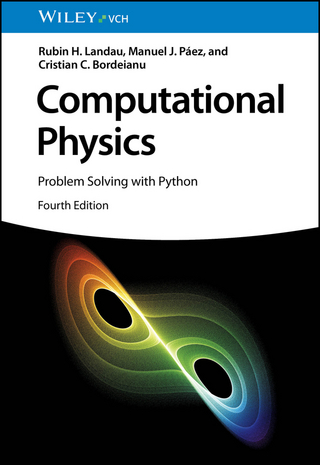
Renewable Energy
CRC Press (Verlag)
978-0-367-76837-9 (ISBN)
This revised edition of Renewable Energy: A First Course is fully updated and continues to provide the best in-depth introduction to renewable energy science. The book focuses mainly on renewable energy, but also addresses nonrenewable energy (fossil fuels and nuclear technology). The coverage extends from the basic physics to conservation, economic, and public policy issues, with strong emphasis on explaining how things work in practice. The authors avoid technical jargon and advanced math but address fundamental analytical skills with wide application. Updated statistics, figures, policies, trends, and technological advancements will bring the reader up to speed with the current state of renewable energy.
Robert Ehrlich is a professor of physics emeritus at George Mason University, Fairfax, Virginia. He earned his BS in physics from Brooklyn College and his PhD from Columbia University. He is a fellow of the American Physical Society. He formerly chaired the physics departments at George Mason University and The State University of New York at New Paltz and has taught physics for nearly four decades. Dr. Ehrlich is an elementary particle physicist and has worked in a number of other areas. He has authored or edited 20 books and about 100 journal articles. His current scholarly interests include renewable energy and the existence of faster-than-light particles. Harold A. Geller is associate professor emeritus of physics and astronomy, George Mason University. He is an adjunct professor at American University, Washington, DC. He earned his BS from the University of the State of New York, Albany, and his MA in astronomy and informatics, and his doctorate in education from George Mason University. Dr. Geller has taught physics and astronomy over thirty years. He was associate chair of the Department of Physics and Astronomy and Observatory Director; manager of Washington Operations, Consortium for International Earth Science Information Networks; program manager, Science Applications International Corporation; president, Potomac Geophysical Society; and doctoral fellow, State Council of Higher Education, Virginia. He has authored/edited nine books and published over 100 papers in education, astronomy, and biochemistry. His current scholarly interests include renewable energy, the search for extraterrestrial life, and science education. John R. Cressman is an associate professor of physics and astronomy at George Mason University, Fairfax, Virginia. He earned his BS from Union College in Schenectady, NY, and his PhD from the University of Pittsburgh. He is the associate chair for the Department of Physics and Astronomy and teaches courses in both physics and neuroscience. He is an experimental physicist who studies systems driven far from equilibrium, from simple fluids to complex biological networks, and publishes in journals from applied mathematics to experimental neuroscience. His current area of focus is on the often dramatic transient dynamics that can occur when a controlling parameter, like temperature, of a system is changed.
1 Introduction
2 Fossil Fuels
3 Nuclear Power: Basic Science
4 Nuclear Power: Technology
5 Biofuels
6 Geothermal Energy
7 Wind Power
8 Hydropower
9 Solar Radiation and Earth’s Climate
10 Solar Thermal
11 Photovoltaics
12 Energy Conservation and Efficiency
13 Energy Storage and Transmission
14 Climate and Energy: Policy, Politics, and Public Opinion
15 Data Analytics and Risk Assessment: An Overview
16 Dynamics of Population: An Overview
Appendix A: Answers to Even-Numbered Problems
Appendix B: Useful Physical Constants
Appendix C: Useful Conversion Factors
| Erscheinungsdatum | 21.06.2022 |
|---|---|
| Zusatzinfo | 32 Tables, black and white; 66 Line drawings, color; 50 Line drawings, black and white; 88 Halftones, color; 36 Halftones, black and white; 154 Illustrations, color; 86 Illustrations, black and white |
| Verlagsort | London |
| Sprache | englisch |
| Maße | 210 x 280 mm |
| Gewicht | 3430 g |
| Themenwelt | Naturwissenschaften ► Physik / Astronomie |
| Technik ► Elektrotechnik / Energietechnik | |
| Technik ► Umwelttechnik / Biotechnologie | |
| ISBN-10 | 0-367-76837-2 / 0367768372 |
| ISBN-13 | 978-0-367-76837-9 / 9780367768379 |
| Zustand | Neuware |
| Haben Sie eine Frage zum Produkt? |
aus dem Bereich


